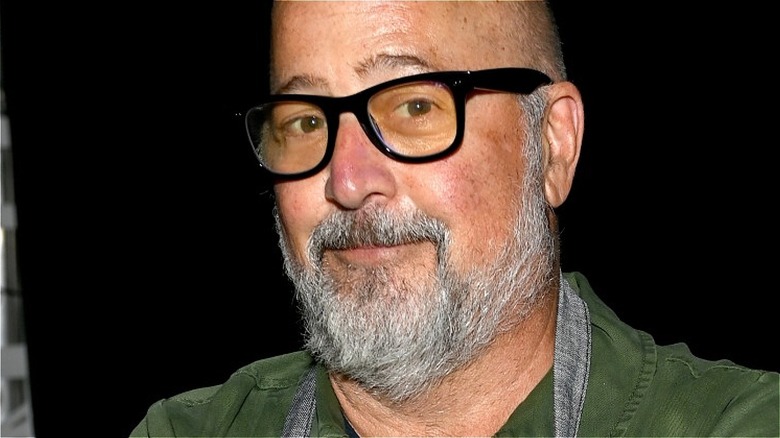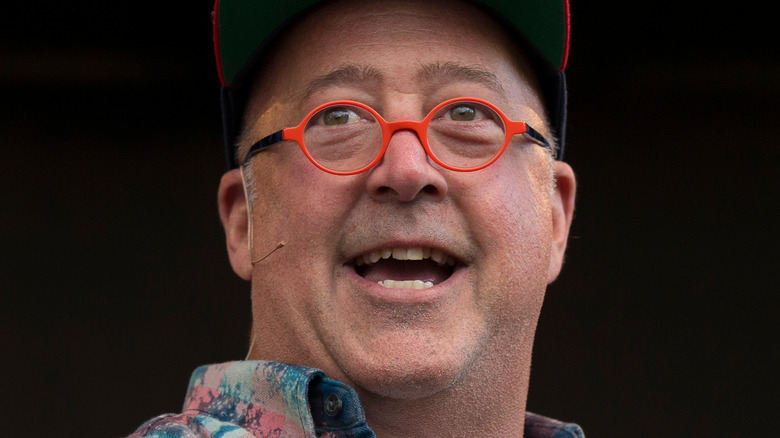Andrew Zimmern Named The Food Trends That He's Optimistic About For The Future
It's fun to follow food news, but every now and then, the headlines start to sound a little bleak. How about food inflation becoming the worst it's been in 40 years earlier this year? Or what about egg prices going through the roof thanks to an inflation-avian flu outbreak combo that even made people rethink what to have for breakfast? And then there's climate change, which we don't even want to get into, but let's just say that at the very least, it could affect the US food supply. Oh, and vanilla could become impossible to source soon because of climate change, too (via Addison Independent). The future of dessert hangs in the balance.
The news can be a downer, but sometimes it's worth it to dig a little deeper to find stories that are hopeful. It can't all be bad ... right? That seemed to be one Andrew Zimmern fan's question on Twitter. "To be holiday season upbeat," they asked, "can you name 3 US food trends that give you optimism about either or both our health and the planet?" Thankfully Zimmern, the well-traveled host of "Bizarre Foods" and author of the "Spilled Milk" newsletter, had an answer that offers a bit of hope for the foodies of the world to hold onto amidst the daily deluge of negative news stories.
Zimmern had some happy thoughts
Andrew Zimmern solicited questions on Twitter for him to answer in his "Spilled Milk" newsletter, and one of his fans came up with a heavy-hitting question about optimistic food trends. Zimmern, thankfully, was ready with his answers (via Twitter). "People are eating less meat," Zimmern said, and that's partially true — even carnivore king Francis Mallmann is eating less meat these days. Interestingly, though beef consumption has been on the decline (via Eater), consumption of other meats was actually on the rise before the COVID-19 pandemic changed eating habits yet again (via Agriculture).
Also on Zimmern's list? "Biden admin convened first WH Conf on Health, Nutrition, Hunger in last 50 years," and finally, "We are recognizing more foods from different cultures than ever before and not perseverating on Western European foods." It makes sense that Zimmern, who has eaten and traveled all over the world, would be especially happy to see this culinary expansion happening. Gone are the days of fetishizing the same classical French recipes over and over again — these days, in cities like Los Angeles, critics are showing their appreciation for a wide variety of global and diasporic cuisines (via LA Times). That means more voices are being heard, more cultural exchange is occurring, and the food world is, simply put, more diverse. There may be a lot of scary headlines to face every day, but thanks to Zimmern, we have at least a beacon of hope to hold on to.

